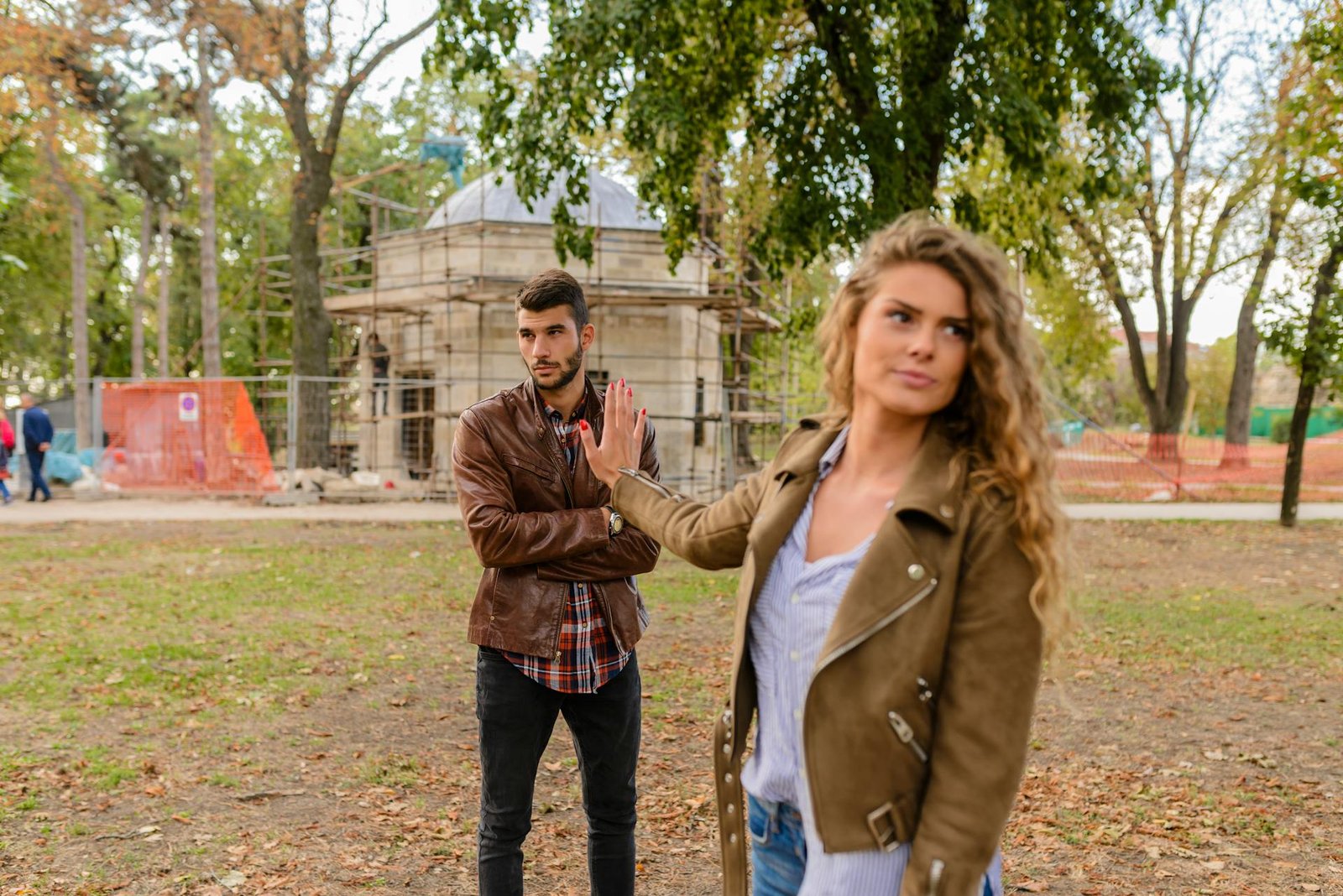Relationships don’t necessarily make you feel like sunshine and rainbows. Sometimes, they even make you feel worse. What makes a relationship toxic? When two people’s connection starts wearing them down, either emotionally or mentally.
Relationships can really affect your peace, your confidence, and even your health. I am going to guide you on the signs, the reasons why, and what you could do about it.
What Makes a Relationship Toxic? Let’s Break It Down
A toxic relationship isn’t always apparent at first. It sneaks up on you. You might experience feeling uneasy, stressed, or even scared rather than happy and supported. The worst thing? Many people don’t discover they’re in one until it’s too late.
But the fact that you’re here means you’re beginning to realize something’s wrong. That means a lot. Let’s break down the red flags so you can understand what makes a relationship toxic.
7 Toxic Relationship Signs
You’re not certain if your relationship is going downhill? These are some of the biggest red flags to look out for:
1. Lack of Trust
Trust is like the glue that holds any relationship together. If you’re constantly suspicious or questioning your partner’s actions, something’s wrong. Maybe they’re hiding things, sneaking around, or being dishonest. Either way, it’s not healthy.
2. Constant Criticism
Criticism is normal sometimes, but when it’s all the time, it feels like an attack. If your partner never has something kind to say or always points out what’s “wrong” with you, it chips away at your confidence.
3. Control and Manipulation
Do you feel like your partner is trying to make all your decisions for you? Control comes in many forms sometimes obvious, like telling you what to wear, and other times sneaky, like guilt-tripping you into doing things their way.
4. Emotional or Physical Abuse
This one’s a big deal. Emotional abuse can manifest in constant put-downs, blaming you for everything, or gaslighting (making you doubt your own reality). Physical abuse, of course, is far more dangerous and never acceptable.
5. Unequal Effort
Relationships are meant to be a team effort. If you are doing all the planning, apologizing, or compromising, you will eventually feel drained. It is exhausting when the balance is completely one-sided.
6. Isolation from Friends and Family
Does your partner make you feel bad for spending time with others? Maybe they discourage you from seeing your friends or family, or they make you feel guilty for wanting space. This isolation can leave you feeling trapped.
7. Negative Energy
How do you feel after spending time with your partner? A good relationship should leave you feeling happy and supported. If every interaction leaves you feeling anxious, sad, or just plain drained, that’s a big red flag.
Also read: How to live a full and abundant life?
Why Do Relationships Become Toxic?
No one starts out wanting a toxic relationship. It’s something that happens over time, often without people realizing it. So, What makes a relationship toxic? Here are some common reasons:
- Unmet Needs: When a person feels ignored or unappreciated, he can start acting in ways that hurt the relationship.
- Poor Communication: Misunderstandings and constant arguing can spin into toxic patterns.
- Insecurity: Jealousy, mistrust, and low self-esteem can create a lot of unnecessary conflict.
- Unrealistic Expectations: Expecting your partner to be perfect or meet all your needs is a recipe for disappointment.
How to Fix a Toxic Relationship
The truth is that toxic relationships don’t have to end. In fact, often enough, they can be remedied—and only by both of the persons involved. To turn things around if you really want to, here’s how to do it:
1. Talk About It
You can’t fix what you don’t talk about. Talk to your partner about how you feel. Use “I” statements to avoid the blame game. Instead of saying, “You never listen to me,” try saying, “I feel unheard when we talk.”
2. Set Boundaries
Boundaries are like invisible walls that protect your mental and emotional space. Let your partner know what’s okay and what’s not. For example, you might say, “I’m not comfortable with you going through my phone.”
3. Get Help
Sometimes, you can’t fix things on your own. A therapist or counselor can help both you and your partner work through issues and learn better ways to communicate.
4. Take Care of Yourself
Don’t get lost in the relationship. Do things you love, hang out with your friends, and maintain your own happiness.
5. Know When to Let Go
Not every relationship is worth your time. If your partner does not change or if the damage is too deep, then it might be time for you to walk away.
How to Avoid Toxic Relationships in the Future
No one likes being hurt once, twice even, correct? Well, here are a few do’s on how not to find the same toxicity in relationships again:
- Know Your Worth: Be remembered: You are loved, and you deserve respect.
- Be Patient: Do not force your relationship. One can always take enough time getting to know each other.
- Find Positive Characteristics: Be positive; this might mean seeking kindness, honesty, and open communication.
- Trust Your Feelings: If something feels off, trust your gut.
Why It’s Important to Leave Toxic Relationships
Being in a relationship that’s bad for you can take a huge toll on your mental and physical health. Over time, it can lead to problems such as anxiety, depression, and even stress-related illnesses.
But when you leave, you give yourself the chance to heal and grow. You open the door to healthier, happier relationships in the future. Life is too short to stay with someone who makes you miserable.
FAQs About What Makes a Relationship Toxic
1. Can toxic relationships ever get better?
Yes, but only if both people are willing to work on it. Key steps include open communication, boundaries, and sometimes professional help.
2. What if I’m the toxic one?
It takes a lot of guts to admit you might be part of the problem. If you notice that you’re controlling, overly critical, or dismissive of your partner’s feelings, consider working on those behaviors. Therapy can really help with this.
3. Is a toxic friendship as bad as a toxic romantic relationship?
Absolutely. Toxic friendships can inflict the same amount of stress and pain. The signs are all similar: manipulations, lack of support, and constant badgering.
So there it is – everything you need to know about what makes a relationship toxic. The first step is recognizing the problem, and from there, it’s up to you to decide what’s best for your happiness and well-being. You deserve better, always.








